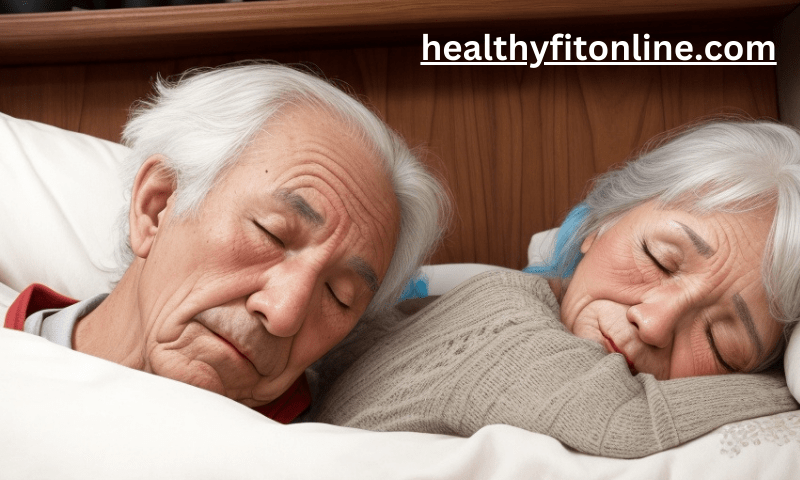In our life we do lots of things but sleeping is one of the better fleeing work we had, that time we didn’t think about anything.
Outline of the Article
- H1: Introduction
- H2: The Science Behind Sleep
- H3: Sleep and Exercise Performance
- H4: Sleep Quality and Fitness
- H5: Sleep Duration Recommendations
- H6: Sleep Deprivation and Its Consequences
- H7: Sleep and Mental Health
- H8: Sleep Hygiene for Athletes
- H9: Napping and Its Benefits
- H10: Sleep Supplements and Their Role
- H11: The Role of Nutrition in Sleep
- H12: Sleep Disorders and Fitness
- H13: Personal Stories and Experiences
- H14: Conclusion
- H15: FAQs
- Introduction
- The Science Behind Sleep
- Sleep and Exercise Performance
- Sleep Quality and Fitness
- Sleep Duration Recommendations
- Sleep Deprivation and Its Consequences
- Sleep and Mental Health
- Sleep Hygiene for Athletes
- Napping and Its Benefits
- Sleep Supplements and Their Role
- The Role of Nutrition in Sleep
- Sleep Disorders and Fitness
- Personal Stories and Experiences
- Conclusion
- FAQs
H1: Introduction
- Importance of sleep in fitness
- The connection between sleep and overall wellbeing
H2: The Science Behind Sleep
- Sleep cycles and stages
- The role of circadian rhythms
H3: Sleep and Exercise Performance
- Impact of sleep on strength and endurance
- Recovery and muscle growth
H4: Sleep Quality and Fitness
- The role of sleep quality in fitness
- Tips for improving sleep quality
H5: Sleep Duration Recommendations
- Recommended sleep duration for different age groups
- How much sleep athletes need
H6: Sleep Deprivation and Its Consequences
- Effects of sleep deprivation on workouts
- Long-term health consequences
H7: Sleep and Mental Health
- Connection between sleep and mental wellbeing
- Strategies for better sleep for mental health
H8: Sleep Hygiene for Athletes
- Establishing a sleep routine
- Sleep environment optimization
H9: Napping and Its Benefits
- The power of a short nap
- Napping tips for athletes
H10: Sleep Supplements and Their Role
- Overview of sleep supplements
- Risks and benefits
H11: The Role of Nutrition in Sleep
- Foods that promote better sleep
- Timing of meals and sleep
H12: Sleep Disorders and Fitness
- Common sleep disorders
- How they affect fitness
H13: Personal Stories and Experiences
- Athletes’ testimonials on sleep and fitness
- Real-life success stories
H14: Conclusion
- The integral relationship between sleep and fitness
- The path to a healthier, fitter, and well-rested you
H15: FAQs
- FAQ 1: How many hours of sleep do athletes need?
- FAQ 2: Can poor sleep quality lead to weight gain?
- FAQ 3: What are the best practices for improving sleep quality?
- FAQ 4: Do sleep supplements really work?
- FAQ 5: How can I establish a consistent sleep routine?
Sleep and Fitness: How Rest Affects Your Workouts and Overall Wellbeing
Introduction
In the quest for better fitness and overall wellbeing, we often focus on exercise routines and dietary choices. However, there’s one critical element that tends to be underestimated: sleep. Your sleep patterns can have a profound impact on your workouts and your general sense of health and wellness. In this article, we’ll delve into the intricate relationship between sleep and fitness, exploring the science behind it, its effects on exercise performance, and practical tips for optimizing your sleep for improved fitness.
The Science Behind Sleep
Before we jump into the effects of sleep on fitness, it’s crucial to understand the science behind sleep. Our sleep is structured in cycles and stages, and our body follows circadian rhythms that regulate our sleep-wake patterns. Sleep cycles include both REM (rapid eye movement) and non-REM stages, with each playing a unique role in our overall health.
Sleep and Exercise Performance
Impact of Sleep on Strength and Endurance
Quality sleep is like a secret weapon for athletes. It enhances your strength and endurance. When you’re well-rested, your muscles recover and regenerate more effectively. This means you can push harder during your workouts and achieve better results.
Recovery and Muscle Growth
During in your deep sleep stages that time your body releases growth hormone that which is essential for muscle repair and growth. Inadequate sleep can hinder these processes, making it harder to recover and build muscle.
Sleep Quality and Fitness
The quality of your sleep matters as much as its based on the duration of sleep. Poor sleep quality can leave you feeling groggy and fatigued, negatively impacting your exercise performance. To improve sleep quality, create a comfortable sleep environment, and establish a bedtime routine.
Sleep Duration Recommendations
How much sleep do you need to support your fitness goals? The recommended duration varies by age and lifestyle. Athletes, in particular, require a bit more than the average adult. We’ll provide guidelines for different age groups to help you determine your optimal sleep duration.
Sleep Deprivation and Its Consequences
Sleep deprivation is a common problem, and it can wreak havoc on your workouts. Not only does it decrease your physical performance, but it also leads to long-term health consequences. We’ll explore the potential risks of chronic sleep deprivation.
Sleep and Mental Health
Your mental wellbeing is closely tied to your sleep quality. In this section, we’ll discuss the relationship between sleep and mental health, as well as practical strategies to improve your sleep for better emotional stability.
Sleep Hygiene for Athletes
To maximize your fitness gains, it’s crucial to establish a sleep routine tailored to your athletic lifestyle. Learn how to create an optimal sleep environment and bedtime habits that align with your workout goals.
Napping and Its Benefits
Short naps can be a game-changer for athletes. We’ll explore the science behind power naps and provide tips on how to incorporate them into your daily routine.
Sleep Supplements and Their Role
For those struggling with sleep, supplements may offer a solution. We’ll give you an overview of common sleep supplements, their potential benefits, and the associated risks.
The Role of Nutrition in Sleep
The foods you consume and the timing of your meals can influence your sleep quality. We’ll reveal the best foods to promote better sleep and discuss the importance of meal timing.
Sleep Disorders and Fitness
In our Sleep disorders are more common than you might think. We’ll shed light on some common sleep disorders and explain how they affect an athlete’s fitness journey.
Personal Stories and Experiences
Real athletes share their personal stories and experiences with sleep and fitness. Their testimonials provide a unique perspective on the impact of sleep on their training and overall wellbeing.
Conclusion
In conclusion, sleep is an often underestimated but crucial component of your fitness journey. By understanding the science behind sleep, recognizing the impact of sleep on exercise performance, and adopting practical strategies to optimize your sleep, you can unlock your full fitness potential and enjoy an overall sense of wellbeing.
FAQs
FAQ 1: How many hours of sleep do athletes need?
Athletes typically require 7-9 hours of quality sleep per night. However, individual needs may vary based on age, training intensity, and recovery demands.
FAQ 2: Can poor sleep quality lead to weight gain?
Yes, poor sleep quality can disrupt hormonal balance and lead to weight gain. It can affect appetite-regulating hormones and increase cravings for unhealthy foods.
FAQ 3: What are the best practices for improving sleep quality?
Improving sleep quality involves creating a comfortable sleep environment, maintaining a consistent sleep schedule, and managing stress. Avoiding caffeine and electronics before bedtime can also help.
FAQ 4: Do sleep supplements really work?
Sleep supplements may help some people, but their effectiveness varies. It’s essential to consult with a healthcare professional before using them to ensure they’re safe and suitable for your needs.
FAQ 5: How can I establish a consistent sleep routine?
To establish a consistent sleep routine, set a regular bedtime and wake-up time, create a relaxing pre-sleep routine, and avoid stimulating activities close to bedtime. Consistency is key to improving sleep patterns.


